Related Research Articles

Albert Einstein was a German-born theoretical physicist, widely acknowledged to be one of the greatest and most influential physicists of all time. Einstein is best known for developing the theory of relativity, but he also made important contributions to the development of the theory of quantum mechanics. Relativity and quantum mechanics are the two pillars of modern physics. His mass–energy equivalence formula E = mc2, which arises from relativity theory, has been dubbed "the world's most famous equation". His work is also known for its influence on the philosophy of science. He received the 1921 Nobel Prize in Physics "for his services to theoretical physics, and especially for his discovery of the law of the photoelectric effect", a pivotal step in the development of quantum theory. His intellectual achievements and originality resulted in "Einstein" becoming synonymous with "genius". Einsteinium, one of the synthetic elements in the periodic table, was named in his honor.

Albert Brooks is an American actor, comedian, and filmmaker. He received an Academy Award nomination for Best Supporting Actor for 1987's Broadcast News and was widely praised for his performance as a ruthless Jewish mobster in the 2011 action drama film Drive. Brooks has also acted in Taxi Driver (1976), Private Benjamin (1980), Unfaithfully Yours (1984), and My First Mister (2001). He has written, directed, and starred in several comedy films, such as Modern Romance (1981), Lost in America (1985), and Defending Your Life (1991). He is also the author of 2030: The Real Story of What Happens to America (2011).

The theory of relativity usually encompasses two interrelated physics theories by Albert Einstein; special relativity and general relativity, proposed and published in 1905 and 1915, respectively. Special relativity applies to all physical phenomena in the absence of gravity. General relativity explains the law of gravitation and its relation to the forces of nature. It applies to the cosmological and astrophysical realm, including astronomy.

Thomas Sowell is an American author, social commentator, and economist who is a senior fellow at the Hoover Institution. With widely published commentary and books—and as a guest on TV and radio—he became a well-known voice in the American conservative movement as a prominent black conservative. He was a recipient of the National Humanities Medal from President George W. Bush in 2002.

The Albert Einstein College of Medicine is a private, nonprofit, research-intensive medical school in the Morris Park neighborhood of the Bronx, New York City, United States. Founded in 1953, Einstein operates as an independent degree-granting institution as part of the integrated health care Montefiore Health System and also has affiliation with Jacobi Medical Center.
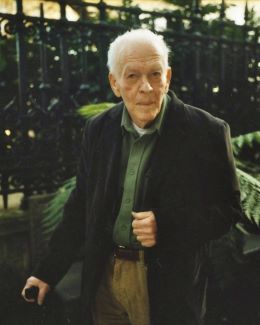
Gene Sharp was an American political scientist. He was the founder of the Albert Einstein Institution, a non-profit organization dedicated to advancing the study of nonviolent action, and professor of political science at the University of Massachusetts Dartmouth. He was known for his extensive writings on nonviolent struggle, which have influenced numerous anti-government resistance movements around the world. Sharp received the 2008 Int’l Peace Abbey Courage of Conscience Award for his lifelong commitment to the defense of freedom, democracy, and the reduction of political violence through scholarly analysis of the power of nonviolent action. Unofficial sources have claimed that Sharp was nominated for the Nobel Peace Prize in 2015, and had previously been nominated three times, in 2009, 2012 and 2013. Sharp was widely considered the favorite for the 2012 award. In 2011, he was awarded the El-Hibri Peace Education Prize. In 2012, he was a recipient of the Right Livelihood Award for "developing and articulating the core principles and strategies of nonviolent resistance and supporting their practical implementation in conflict areas around the world".

Raymond Redvers Briggs was an English illustrator, cartoonist, graphic novelist and author. Achieving critical and popular success among adults and children, he is best known in Britain for his 1978 story The Snowman, a book without words whose cartoon adaptation is televised and whose musical adaptation is staged every Christmas.
Hans Albert Einstein was a Swiss-American engineer and educator, the second child and first son of physicists Albert Einstein and Mileva Marić. He was a long-time professor of hydraulic engineering at the University of California, Berkeley.
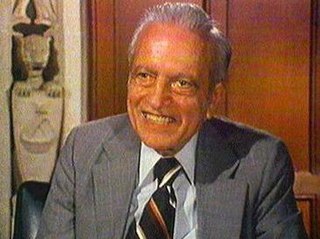
Banesh Hoffmann was a British mathematician and physicist known for his association with Albert Einstein.
Helen Dukas was Albert Einstein's secretary. She also co-authored Albert Einstein: Creator and Rebel and co-edited Albert Einstein: The Human Side with Banesh Hoffmann. Dukas was one of two trustees chosen by Einstein, according to his Last Will and Testament, to hold the literary rights to all of his manuscripts, copyrights, publication rights, royalties, and royalty agreements. The other trustee was the economist Dr. Otto Nathan. In short, Dukas and Dr. Nathan were the "executors of his literary heritage." They collaborated on the compilation of The Collected Papers of Albert Einstein, using documents that were subsequently donated to the Hebrew University of Jerusalem.

Albert Einstein has been the subject of, or inspiration for, many works of popular culture.
Einstein and Religion: Physics and Theology (1999) is a book on the religious views of Nobel prize-winning physicist Albert Einstein by Max Jammer, published by Princeton University Press.
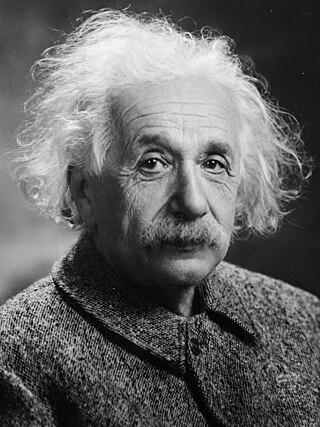
Albert Einstein was predominantly known during his lifetime for his development of the theory of relativity and his work in the field of physics in general. However, his political views were of public interest through the middle of the 20th century due to his fame and involvement in political, humanitarian, and academic projects around the world.

Dan Rattiner is an American journalist and newspaper publisher.
Albert Einstein was a German-born theoretical physicist.
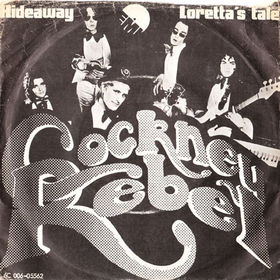
"Hideaway" is a song by the British rock band Cockney Rebel, fronted by Steve Harley. Released as the opening track on the band's 1973 debut album The Human Menagerie, "Hideaway" was released in 1974 as a single in Denmark only. It was written by Harley and produced by Neil Harrison.
The following outline is provided as an overview of and topical guide to Albert Einstein:

Einstein: His Life and Universe is a non-fiction book authored by American historian and journalist Walter Isaacson. The biographical analysis of Albert Einstein's life and legacy was published by Simon & Schuster in 2007, and it has received a generally positive critical reception from multiple fronts, praise appearing from an official Amazon.com review as well as in publications such as The Guardian and Physics Today.

Subtle is the Lord: The Science and the Life of Albert Einstein is a biography of Albert Einstein written by Abraham Pais. First published in 1982 by Oxford University Press, the book is one of the most acclaimed biographies of the scientist. This was not the first popular biography of Einstein, but it was the first to focus on his scientific research as opposed to his life as a popular figure. Pais, renowned for his work in theoretical particle physics, was a friend of Einstein's at the Institute for Advanced Study in his early career. Originally published in English in the United States and the United Kingdom, the book has translations in over a dozen languages. Pais later released a sequel to the book in 1994 titled Einstein Lived Here and, after his death in 2000, the University Press released a posthumous reprint of the biography in 2005, with a new foreword by Roger Penrose. Considered very popular for a science book, the biography sold tens of thousands of copies of both paperback and hardcover versions in its first year. The book has received many reviews and, the year after its initial publication, it won both the 1983 National Book Award for Nonfiction, in Science (Hardcover), and the 1983 Science Writing Award.
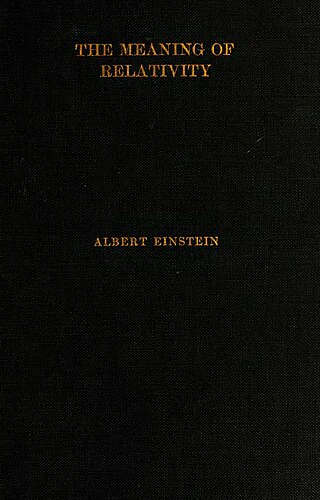
The Meaning of Relativity: Four Lectures Delivered at Princeton University, May 1921 is a book published by Princeton University Press in 1922 that compiled the 1921 Stafford Little Lectures at Princeton University, given by Albert Einstein. The lectures were translated into English by Edwin Plimpton Adams. The lectures and the subsequent book were Einstein's last attempt to provide a comprehensive overview of his theory of relativity and is his only book that provides an accessible overview of the physics and mathematics of general relativity. Einstein explained his goal in the preface of the book's German edition by stating he "wanted to summarize the principal thoughts and mathematical methods of relativity theory" and that his "principal aim was to let the fundamentals in the entire train of thought of the theory emerge clearly". Among other reviews, the lectures were the subject of the 2017 book The Formative Years of Relativity: The History and Meaning of Einstein's Princeton Lectures by Hanoch Gutfreund and Jürgen Renn.
References
- ↑ "Albert Einstein, creator and rebel". WorldCat. Retrieved 14 April 2023.
- ↑ by Martin J Klein and Robert K Merton. abstract November 5, 1972, Sunday, Book Review Section, Page BR3,
- ↑ "Archived copy". Archived from the original on 2012-10-25. Retrieved 2017-07-05.
{{cite web}}: CS1 maint: archived copy as title (link) - ↑ "WorldCat entry". www.worldcat.org.[ dead link ]